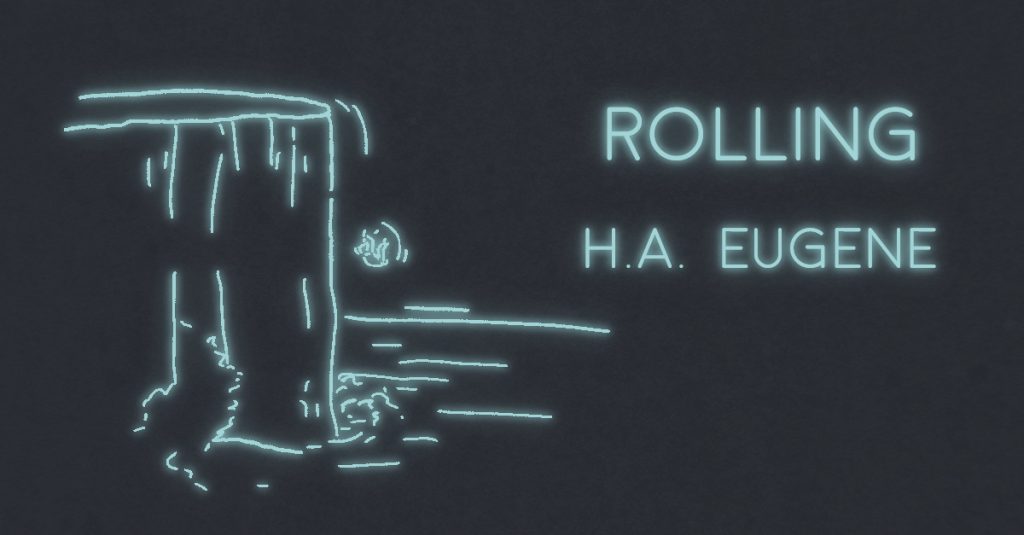
ROLLING by H. A. Eugene
The day came when he didn’t know what else he could possibly do, so he climbed up a great hill and lied down on top of it. And then he started rolling.
He accelerated, faster and faster, and after a few exhilarating bangs and bumps, found himself, once again, at the bottom. But he didn’t stop there. He kept on rolling—through the woods and into town. Eventually he rolled into the city, underneath the highway that bisected its sprawling map, past the train tracks, and beyond the outlet stores that marked the suburb’s edge.
Rolling, rolling, rolling.
Until houses changed to warehouses, and warehouses changed to land with unshaven grass and ravenous trees that crawled over rocks and monopolized the dirt; until that dirt turned to rock, and that rock, a chalk-like substance that ended at a cliff whose edge dropped into a churning, interminable darkness.
The sea.
And with no regard for what lay ahead, he plunged right off that edge—and splashed directly into the foaming brine. But this didn’t stop his motion, no. Instead, he continued rolling—underwater. On the sea floor, over massive dead reefs, and beyond the Continental Shelf, then down into the Mariana Trench, where water flows beneath the water.
And even in this lightless submarine plain of great pressure and gurning silence, he kept on rolling.
Rolling, rolling, rolling.
By this point, it was as if motion had become a type of stillness, and stillness, motion; a convolution of senses, all but ignored by his ceaselessly spinning purview.
Like those numerous wrecks—missing machines, long since abandoned and so time-worn, they appeared ancient.
And those ruins—so eroded, they appeared constructed by time and chance, and not by people.
And those bizarre entities—yes, there were creatures down there! But as organisms go, they were barely alive, in the sense that he understood ‘alive’ to be. And the exact shapes of their oblique bodies—to say nothing of how they lived at all, this far down—would never be known by him. Because—like the wrecks, the ruins, and every other mystery that whirled by—they appeared only as colorful slivers of light, beheld for barely a stroboscopic moment; far too quick to ever be properly defined, or explained. Because he was rolling.
Rolling, rolling, rolling.
And he kept on rolling, even when the waters became still, and the air rejoined the surface, where birds made feasts of dead things in the briny surf.
Mind you, by this point, he, himself, was dead; though that hardly mattered. His lack of life did nothing to stop his rolling; though eventually, his body did fall apart, smallest bits, first. Fingernails, then fingers. Then hands. Then arms. And those biggest chunks of him dissolved into bone and mush; then sand, until that sand broke up into the smallest possible units of matter; mindless doo-dads that kept on and on and on; compelled by heat and cold, to a state of endless, un-feeling motion.
Rolling, rolling, rolling.
